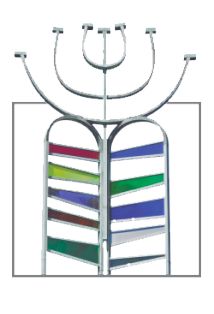Jewish life
Life Cycle Events - Death & Mourning
Dealing with the death of a loved one can be one of the most emotionally challenging times of one’s life. Navigating the many logistical and ritual elements of our Jewish traditions can feel overwhelming. Our clergy are available to guide, comfort, and support all those in need.
When you or your loved one is in the hospital or seriously ill, please let us know so we can help. Link and phone number.
Preparing for the Death of a Loved One
We know that the days leading up to a death can cause a whirlwind of emotions and pain. However, it is important at that time to concentrate on the living and avoid treating your loved one as if they have already died. Funerals can be planned quickly and will always be treated with urgency. Still, there are important steps you can take in the days (and years) leading up to death. The more information you can collect about your loved one before they pass away, the easier the burden will be after their death. We suggest, if possible, completing the following forms before they are needed. (Link)
Family Information Form and Checklist
This form is for the use of the family and contains important information including your loved one’s Hebrew name and their parents’ Hebrew names, estate and insurance information, names of relatives, and funeral arrangements. Collecting this information is essential for filling out the death certificate, preparing the funeral, and settling your loved one’s estate.
Advanced Directive (Living Will) and Health Care Proxy
An advanced directive enables a person to specify the kind of life-saving measures he or she wants and does not want near the end of life. Although it is difficult, speaking with your loved ones about these issues will greatly ease the burden of decision making later on. New York State allows one to appoint a proxy to make these decisions.
A Will
Wills are essential documents that allow you to decide what happens to your estate after you pass away. Because there are many legal issues, both state and federal, surrounding one’s property and estate, we urge you to contact a lawyer. Every adult, no matter his or her age, needs a will. [is there a link here? Contact information to the office?]
Ethical Will
Ever since Jacob gathered his children together around his deathbed (Gen. 49), ethical wills have remained an important means to pass on one’s values, blessings, and dreams to one’s family and loved ones. Often written in the form of a letter, these documents contain the essential lessons one wants to impart to those they love. [is there a link here? Contact information to the office?]
For more information on any of the above
Please contact Director of Operations and Engagement Erica Newman here.

